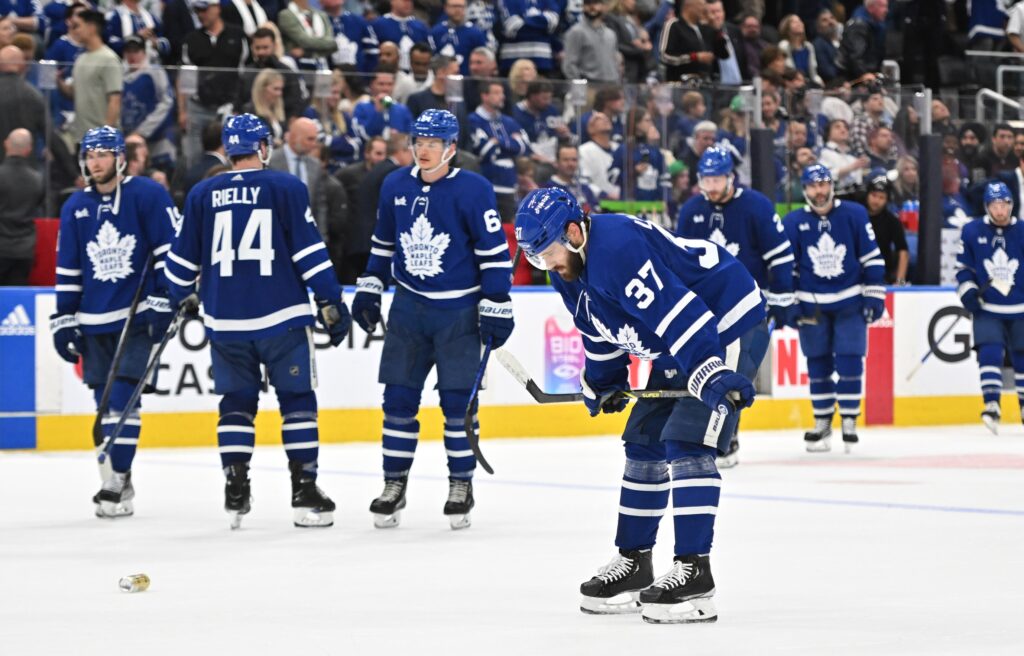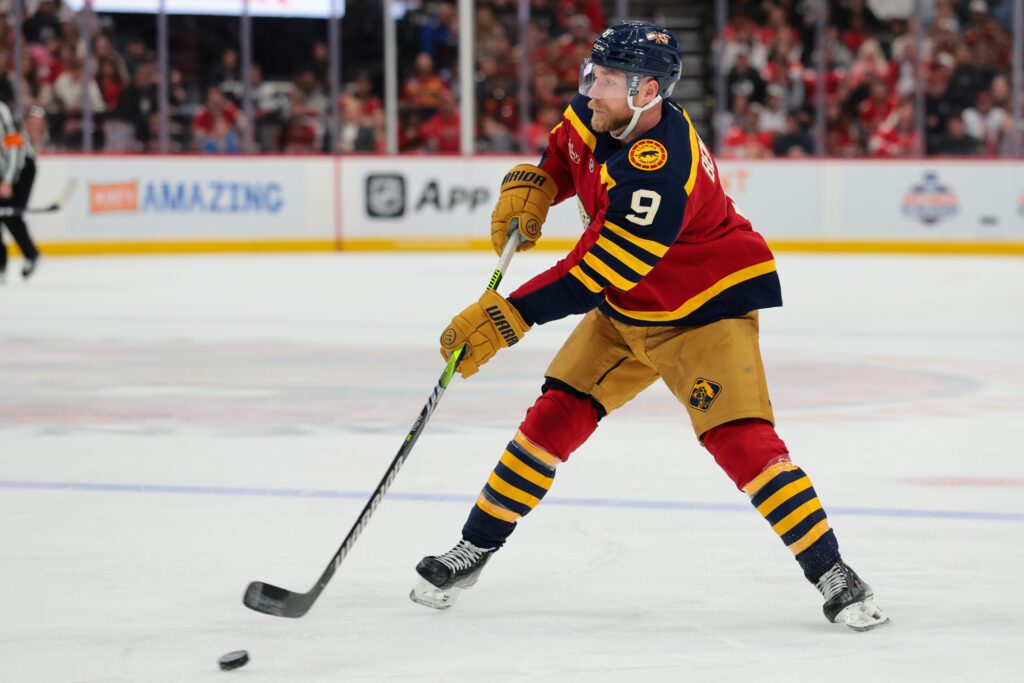After the Toronto Maple Leafs knocked the behemoth that is the Tampa Bay Lightning in the first round of the playoffs, many of their fans believed that “the curse had been broken” and that this was the year that the Core Four would finally lead Toronto to Stanley Cup contention. As we now know, this was not to be: the Leafs failed again.
As someone who is not personally a Maple Leafs fan, I thought it would be respectful to give their fans so space before giving my own post-mortem as to why exactly the fifth time wasn’t the charm. Here are three reasons why Toronto is going back to the drawing board again this offseason.
3 Reasons Why the Leafs Failed Yet Again
1. They were “Goalied” by Bobrovsky
They say that goaltending wins championships, and there is no doubt that Sergei Bobrovsky was outstanding during Toronto’s second-round matchup against the Florida Panthers. The two-time Vezina winner put up a goals-against average of 1.89, a save percentage of 0.943, and a goals saved above expected of 7.75 in the five-game series. For a series where only 24 goals total were scored (and only 10 by the Maple Leafs), preventing almost eight expected goals from being scored made a significant difference in the series.
However, as Steve Dangle recently said (yelled), “Teams. Have. Goalies… They all have goalies.” In fact, the Maple Leafs have goalies too. Ilya Samsonov and Joseph Woll combined for a 1.11 GSAx in the series, which is above average. Joseph Woll was particularly good, posting a GAA of 2.36 and a SV% of 0.921, stats which normally would be good enough to win. It is true that Bobrovsky played very well in the series, but before this playoff season, the 34-year-old’s career playoff record was 17 wins and 29 losses. It is not like he is unbeatable.
2. The Defense Pairs Allowed too Many Chances
Let me state for the record that the Maple Leafs defensive pair of Morgan Rielly and Luke Schenn was quite good in this series. The pair combined for five points (one goal and four assists), 30 hits, 14 blocked shots, and had a GF% of 75.00. They played together for just under 76 minutes of ice time during the series. There were three other pairs who played over 30 minutes: T.J. Brodie and Jake McCabe, T.J. Brodie, and Justin Holl, and Mark Giordano and Timothy Liljegren. All three were trainwrecks in their own ways.
As a pair, Brodie and McCabe looked great on the ice. They were a chance-creating machine, with a CF% of 53.66 and a xGF% of 56.70 (both numbers better than the Reilly-Schenn pairing). However, all of their chance creation seemed to backfire on the team. The Brodie-McCabe pair was on the ice for only one goal scored for Toronto, but it was on the ice for six goals scored for Florida, by far the most out of any defensive pair for the Leafs.
Giordano-Liljegren had below-average advanced statistics (44.26 CF% and 40.42 xGF%), meaning that they were mostly on their heels when they were on the ice, but they were able to hold their own for the most part. They were on the ice for one goal for and one goal against. The final pair of Brodie-Holl was absolutely abysmal. Not only did they have the worst advanced stats on the team (35.29 CF% and 22.68 xGF%), but they had an actual GF% of 0.00 (on for zero goals for and two goals against). As a team that entered the playoffs with what was described as the best defensive core the team had had in decades, they simply were not good enough.
3. Toronto’s Big Guns Could not Put the Puck in the Net
The Toronto Maple Leafs averaged 2.00 goals scored per game in the second round. In fact, they scored exactly two goals in each of the five games. Not surprisingly, this was the lowest number out of all of the teams who played in the second round (the New Jersey Devils were second lowest with 2.60 goals scored per game).
Of the ten total goals that Toronto scored, only three were scored by the “Core Four”: two by William Nylander, one by Mitch Marner, and none by Auston Matthews or John Tavares. In fact, none of these four led the team in points for the series either. That honour goes to Morgan Rielly with four (one goal and three assists).
Needless to say, the Maple Leafs counted on their big forward scorers all year. These four combined averaged 1.11 points per game each during the regular season and accounted for 52.5% of all the goals that Toronto scored. The power play was also unable to score at the same clip that it did during the regular season. Their lethal 26.0% power play dropped off to 18.2% in the second round. Though this number is not horrible per se, it is just another indicator of the team’s usually potent offense drastically losing that potency against Florida.
There really is no good excuse for why the Toronto Maple Leafs lost in the second round to the Florida Panthers. Toronto had the better team on paper, but they just did not play well enough to win. To quote an old hockey adage, “their best players weren’t their best players.” For now, the debate will continue as to whether or not players like Matthews, Marner, and Tavares will ever be able to get the job done in the playoffs and whether or not the team should “run it back” again. For us who are not Leaf fans, it’s all just entertainment.
Main Image: Dan Hamilton-USA TODAY Sports



